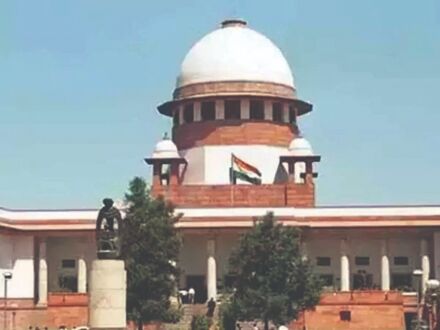'Will not reopen decision on grant of quota in promotion to SCs, STs'

New Delhi: The Supreme Court Tuesday said it would not reopen its decision on granting reservation in promotions to Scheduled Castes (SCs) and Scheduled Tribes (STs) as it was for the states to decide how they implement it.
Taking up various pleas pertaining to alleged hurdles in granting reservation in promotions to SCs and STs in various states, a three-judge bench headed by Justice Nageswara Rao directed the Advocate on Records of state governments to identify issues peculiar to them and submit those within two weeks. "We are making it very clear that we are not going to reopen Nagraj or Jarnail Singh (cases) because the idea was only to decide these cases in accordance with the law laid down by the court," said the bench, also comprising Justices SanjivKhannna and B R Gavai.
The top court noted that in its earlier order, the state governments were directed to finalise the issues which are peculiar to them so that court can proceed in the matter. The issues framed by the Attorney General K KVenugopal and the ones circulated by others are enhancing the scope of cases, it said.
"We are not willing to do that. There are certain issues which are already decided in Nagraj that also we are not going to take up. We are very clear that we are not going to permit any arguments for reopening of cases or arguing that law laid down from indirasahney is wrong because the very scope of these cases is to apply the law as laid down by this court." the court said.
Venugopal submitted before the apex court that nearly all these issues have been covered by judgements of the top court and he would give a background of all the cases on issue of reservation since the Indira Sawhney case. Senior advocate Indira Jaising contended that the issue which remains open is benchmarks for adequacy on how a state will decide on which groups are backwards.
"It is not a question of disputed facts any more. In some cases HCs have struck down on the ground that backwardness has not been shown. How any state will establish that representation is adequate and in that sense there will have to be benchmarks for adequacy which will require detailed consideration," she said.
Responding to the submission, the bench said, "We are not here to advise the government what they should do. It's not for us to tell the government how to implement policy. It has been specifically held as to how the states have to implement it and consider backwardness and representation. States have to decide what to do subject to judicial review."
Senior advocate Rajeev Dhavan said he does not want to get into the question of representation as Indira Sawhney judgment is clear that it's not proportionate representation.
"In the Madhya Pradesh case it's very that you cannot rely on the census. This is not the first time that a large batch of cases has come. In each case let written submission be given to the court. The State of Maharashtra says we have set up a committee to decide on 'adequacy of representation'. Why was this not done earlier? As far as the principles are concerned they were enumerated in the Nagraj judgment," he said.



